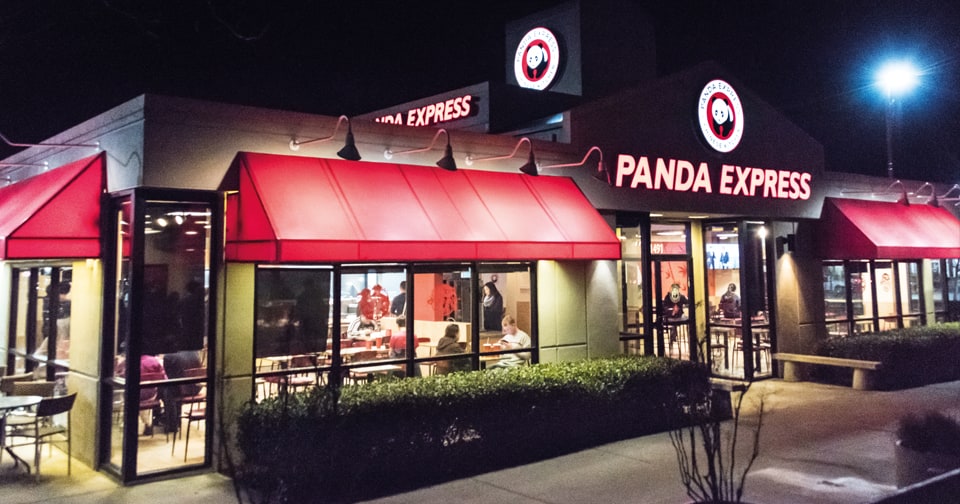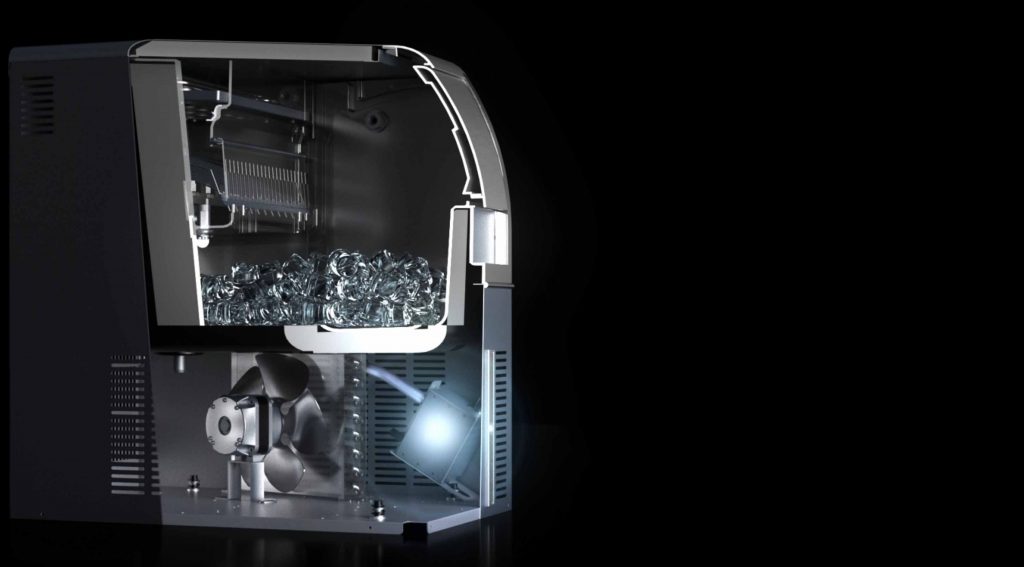
Family values are often prefaced by the words old-fashioned, but as far as Panda Express is concerned, old-fashioned family values have served it well. There are over 2,100 outlets of Panda Express around the world.
Co-founders Andrew and Peggy Cherng, both immigrants to the US, have a combined net worth of US$3.3bn. They own and operate every Panda Express in the US themselves. They don’t franchise.
After celebrating its 35th year in 2018, the brand can be found in 13 countries including its recent launch in Russia, plus the announcement of an opening in the Philippines in 2019. Espousing family values and resisting franchising, this brand is cutting its own path through the fast-food world.
Monte Baier senior vice president, international development, at Panda Restaurant Group explains this unique business model. “Panda Express is the largest family owned and operated Asian restaurant concept, and family values are extremely important to us,” he says.
“Andrew Cherng and his father, master chef Ming-Tsai Cherng, opened the Panda Inn in 1973 and, just over a decade later, Andrew opened the first Panda Express with his wife Peggy. From the start we have been focused on family, and while we have grown to over 2,100 locations those values remain the same. Our locations are company owned so our associates feel a part of this extended family.”
Winning dishes
While keeping it in the family may seem unusual in running a business of this scale, Panda Express finds it vital. “This is why we are so careful in picking our operating partners for our international expansion,” Doug Stalgren, VP Panda International explains. “Our first priority is culture fit. We seek like-minded organisations who believe in developing their people, and who prioritise contributing to the communities they serve.” In expanding to the Philippines, it has chosen to partner with no less than Jollibee Foods Corporation.
Andrew Cherng and his wife Peggy came to the US as immigrants in the 1960s. Andrew has a Masters in applied mathematics, Peggy has a PhD in electrical engineering. Together, they have pioneered fast-casual dining – serving a full Chinese meal for just a dollar or two more than most burger or taco fast-food chains in the US. Panda Express has cornered the Chinese-food sector of the quick-serve market. While most Americans may not know Andrew and Peggy Cherng, many American diners are familiar with Orange Chicken. Panda Express sells over 90 million pounds of Orange Chicken each year.
“Orange Chicken was invented in 1987 by one of Panda Express’s original chefs, Andy Kao,” Baier explains. “He was travelling in Hawaii with Andrew Cherng, who asked Kao to create a Chinese dish that locals would enjoy. Kao looked to the sweet and tart flavour profile of Cherng ’s hometown in China and added local citrus oil to balance the dish. It was brought to the US mainland after it became a hit in Hawaii. People love that we introduced new, bold flavours through a classic fried chicken dish – flavour and crunch that cannot be found anywhere else.”
But Panda Express knows it takes more than a winning dish to succeed in this competitive industry. “For over 35 years Panda Express has stayed relevant by focusing on culinary innovation and listening to our guests,” says Baier.
“Since the day we first opened the Panda Inn in 1973 in Pasadena, California, our goal has been to connect with our guests through the high quality American-Chinese food we serve, and as their tastes and preferences have evolved, so has our menu. While we will always be committed to serving beloved classics, such as the Orange Chicken and Honey Walnut Shrimp, culinary innovation remains one of our core principles. Our chefs are dedicated to serving high-quality ingredients, and they have an opportunity to experiment with these ingredients and develop new and unique dishes, such as the recently launched Wok-Fired Shrimp.”
Staying relevant means addressing the changing food preferences of the dining public. These days, there is a big push towards healthier and less-meat options. Chinese fast-food is notorious for being greasy and unhealthy, but Panda Express is now serving healthier dishes and vegan options.
Culinary experimentation
“Part of our mission at Panda Express is to create flavourful American-Chinese dishes that appeal to the varying preferences and tastes of our guests. We also want to continue to introduce diverse flavours of American-Chinese cuisine, inspired by traditional Chinese culinary principles and local ingredients and tastes,” says Baier.
“Our annual Chef ’s Innovation Camp is a month-long deep dive into culinary experimentation, where chefs conduct research and develop potential future dishes. “Dishes go through a development process at our Innovation Kitchen in Pasadena, California and market testing. We are addressing guests’ desire to choose healthier options and are continuing to build on the Wok Smart menu, which makes up more than half of our current menu. Additionally, Chinese cuisine, and our American-Chinese expression of that cuisine, lends itself to diverse and balanced menu items that support the global trend toward health.”
It is not always easy to address everyone’s dietary preferences. PETA’s petition for more vegan dishes was a challenge as Panda Express used chicken-flavoured stock to season most of its dishes. But the company is committed to listening to its guests, and is determined to find a way. “Over the past couple of years, our teams have been hard at work to make recipe adjustments to remove animal product from some of the favourites such as Chow Mein and Eggplant Tofu,” says Baier.
“While these changes take time at our scale, we focus on doing them right to ensure the integrity of flavours and ingredients that our guests know and love.”
But he adds: “For those with allergens or dietary preferences and restrictions, it is important to note that all items at Panda Express are cooked and prepped in the same kitchen with shared facilities and equipment.”
The company must be applauded for offering simple fixes like Super Greens, a side dish of broccoli, kale, and cabbage. “Panda Express has always had Mixed Veggies on the menu,” Baier says. “We have a practice of elevating our dishes over time, resulting in a delicious, nutrient-rich Super Greens recipe that replaced the Mixed Veggies.”
Family at the heart
Expanding globally makes it imperative to be on top of food trends around the world. “As Panda Express opens new restaurants in the US and around the world, the restaurant remains inspired by developing the bold flavours and innovation of Chinese cuisine that appeals to a diverse audience,” says Baier. “This approach includes beverages as well. The Panda Express Tea Bar menu not only features boba tea (bubble tea), but also other unique tea drinks. Currently, Panda tea drinks are available in select stores in the US and internationally in Japan.”
Growing in a diverse international market, with Panda Express now in Guatemala, El Salvador, Mexico, UAE, Korea, Russia and soon the Philippines, has proved to be an experience ripe with lessons. “As we expand to new countries, a consistent challenge is sourcing ingredients and adjusting menus due to difference in ingredients and/or regulations,” says Baier. “We have a dedicated culinary innovation team, food scientists and supply chain team that work with our international partners to make these changes. The biggest test is, again, choosing partners who fit our culture and values as well as providing their expertise on staffing, communications and guest needs. It’s important to have a collaborative process to continue to grow within and outside of existing markets.”
Sourcing the best ingredients is definitely a priority in the food business, but at the heart of the Panda Express model is its commitment to family, and by family, it means valuing employee empowerment.
“At Panda Express, we are dedicated to our team. With over 39,000 associates in our Panda family, we would be nowhere near where we are today without them, and it is vital to our growth to find the right talent, leadership and business partners,” says Baier. “Our employee’s growth mirrors our growth as a company, and we provide benefits and support to help them reach their personal and professional goals, such as leadership courses or coaching, as well as a focus on wellbeing. As a result of these initiatives, we have been recognised as one of the best places to work more than twenty times over the past three years.”
Inspiring people
Panda Express is famous for paying its employees well. Entry-level positions have been reported to start at $11 an hour. Employee benefits include health care, paid sick leave and annual leave and, after six months on the job, company- subsidised college courses.
In an interview with Los Angeles magazine Andrew Cherng says: “Our job is to develop our people. Take care of your people and everything else follows.”
The founders may sound like motivational coaches, but employees can attest they really walk the talk. Baier confirms the Cherngs’ commitment to the Panda family and guests. “Andrew and Peggy’s continual hands-on involvement and clear vision are key factors in our ability to expand and bring high-quality American-Chinese food to the masses,” he says.
“Business success aside, they have established Panda’s mission to deliver exceptional Asian dining experiences by building an organisation where people are inspired to better their lives. They believe happy associates result in happy and satisfied guests. From healthcare to education funds, Panda is committed to being the source for associates to grow and develop.
“It doesn’t end there,” Baier adds. “Its charitable arm, Panda Cares, has given $140m to health and education causes since 1999.”
Self-development gurus would advise, know yourself and everything else follows. This brands’ success in the restaurant industry is down to it heeding the same advice. “The appeal for over 35 years has been that Panda is family owned. It’s an American Dream success story, with a focus on people, growth, and continuous innovation,” Baier concludes.
“As the QSR landscape becomes noisier, Panda focuses on delicious food, the success of their employees and the desires of their guests. It is a simple equation that is all about values and less about strategies.”
Maida Pineda




